The story of the life of my father. Arthur Brown, “Topper”, as he was known in the Army. He was taken prisoner in the Battle of Dunkirk and remained a prisoner of war for four years. He then managed to escape and arrived back in England a few months before the war ended. The next few posts will trace his life, his wartime experience and the way, years later, he was finally reunited with the Polish family who saved his life.
Part 1- Life Before the War.
Arthur Brown was born in 1919, the year after the First World War ended. He was named after his father and his mother’s name was Emily.
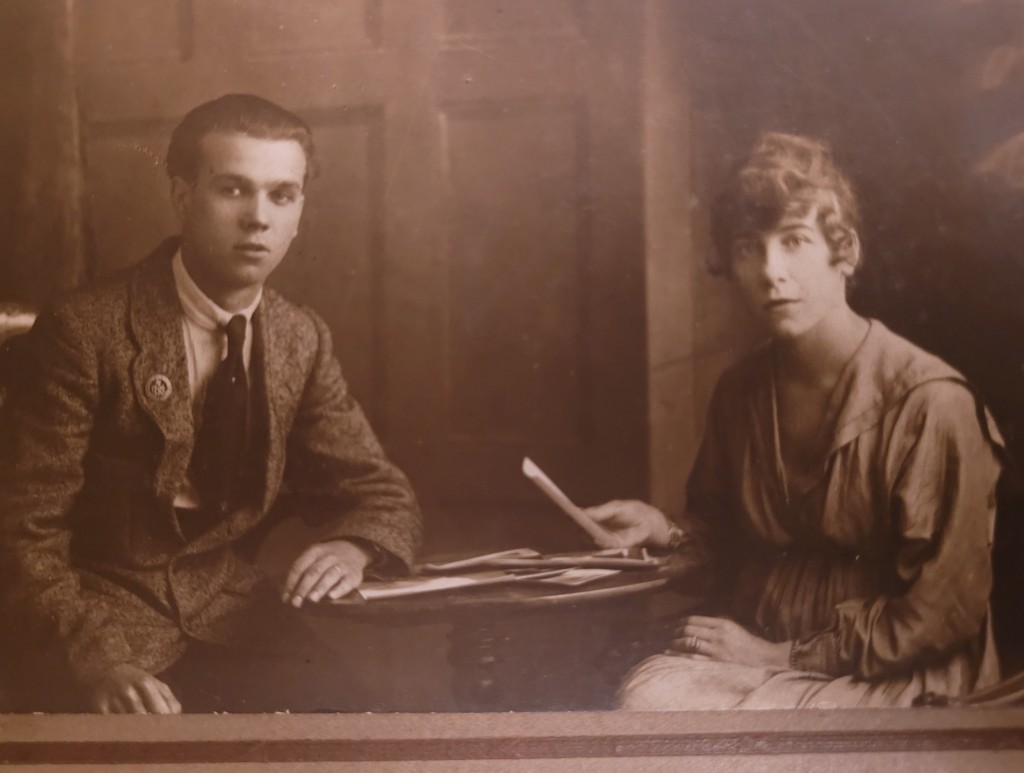

Both his father, and grandfather served in the Army during the First World War.

My grandfather had been invalided out of active service during the war having suffered from gas attacks while fighting in the trenches in France.
After the war , he worked as a motor car driver. However, his damaged lungs never fully recovered and he eventually died of his wartime afflictions when my father was ten years old.
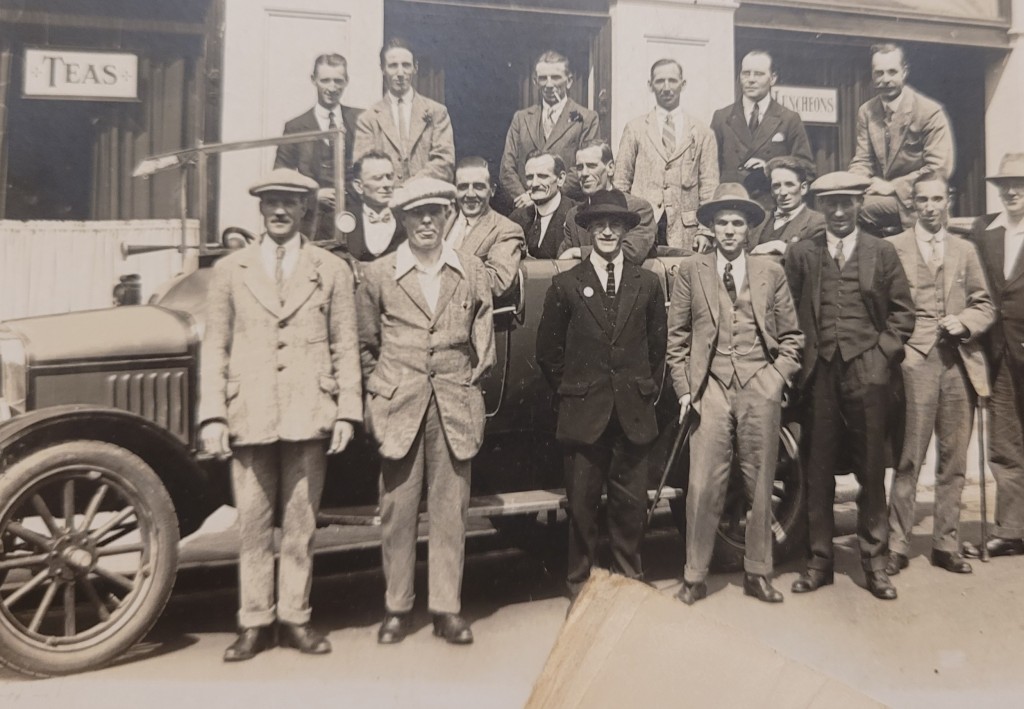
Arthur, his mother and younger sister, Joan, lived in a modest part of London. Young Arthur was a talented sportsman and student, winning praise for his desire to learn.
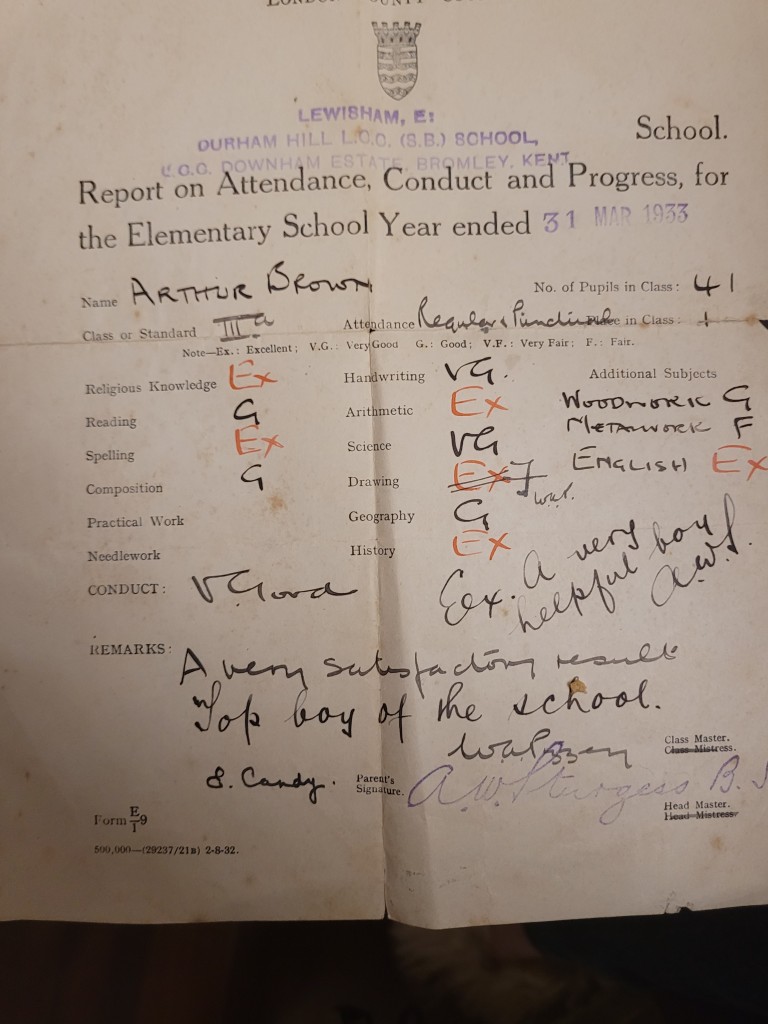
At the age of sixteen, he left school and started work as as counter clerk in the Post Office,
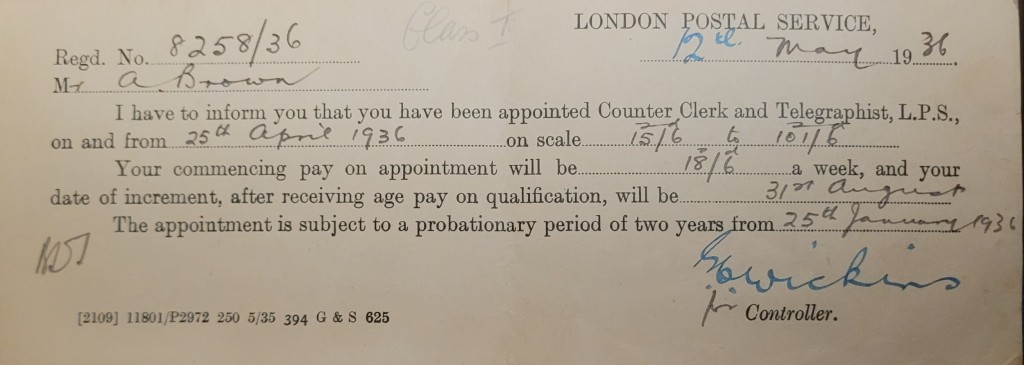
He had already been working for a few years before the Second World War started. He was called up in August 1939 to join the army. Due to his experience in the Post office, he was assigned to the “Royal Signals”, and was posted to France in September 1939, first to the town of Le Mans, then to Boulogne and finally to the channel port of Calais.
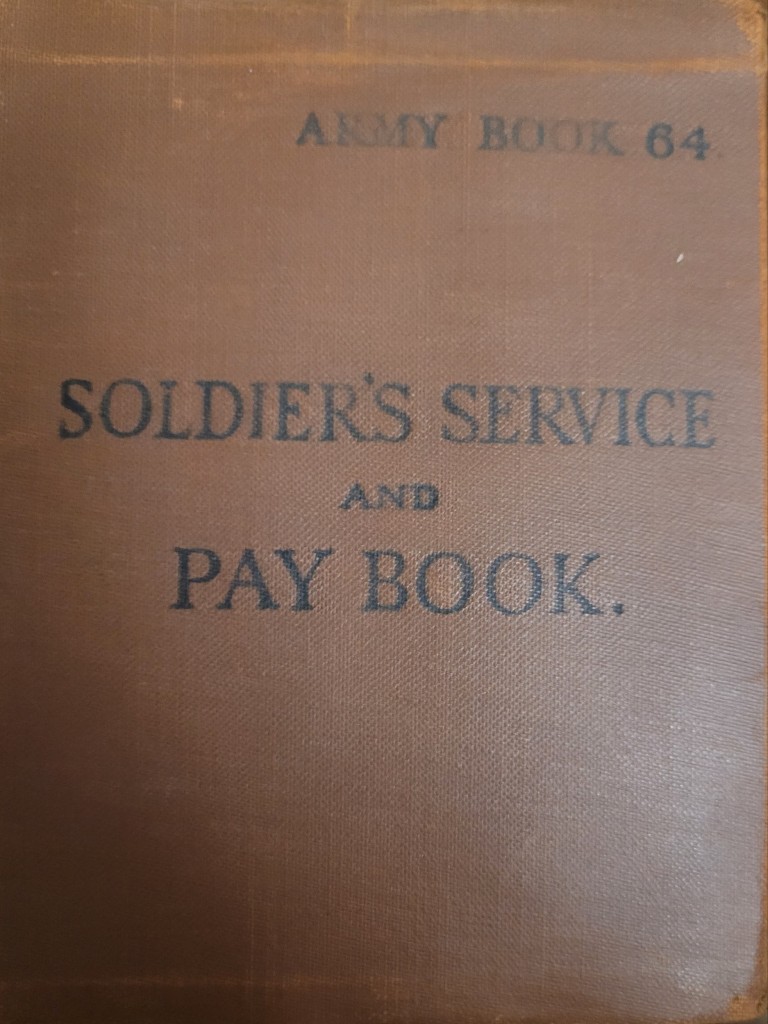
Things seemed calm, as you can see in his following words to his family.
He was even granted ten days of home leave during this time.

The German offensive started in May 1940. The Hotel Imperial where he was stationed in Calais was bombed.
The Batttle of Dunkirk was about to begin!
The first batallions of the German army, including tank divisions advanced rapidly and soon, the British forces were totally outnumbered and trapped.
As the fighting continued the troops, including my father, were forced onto the beach. Plans were made to rescue the troops but logistically this was no easy matter.
It is now well documented how the British Government attempted to repatriate the army from the beaches. As well as Royal Navy vessels, many small civilian boats sailed for France to bring our boys home.

On the beach the situation was grim. Topper could see the rescue boats arriving , but the boats were also under fire and many could not get close enough to the shore to beach their crafts.
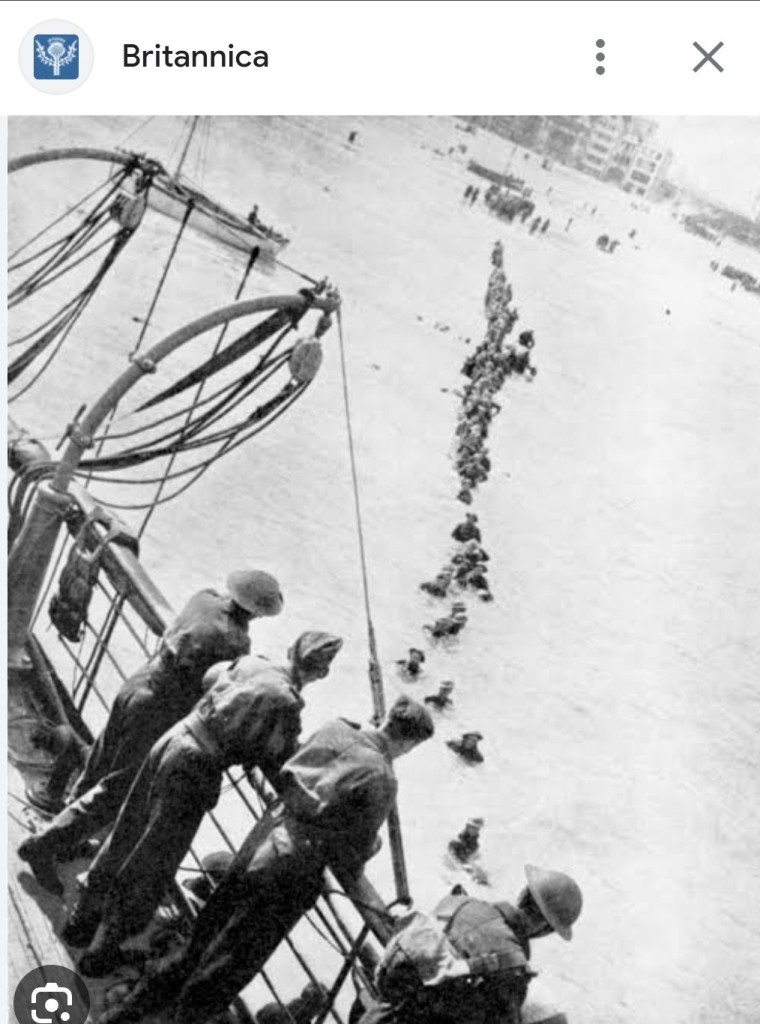
The troops were under constant machine-gun fire. Stuka dive-bombers, attacked from the air dropping bombs and strafing the beaches with their canons. My father never forgot how the Stukas made a frightening, high pitched screaming noise as they dived almost vertically from the sky, filling the troops with moments of dread as they waited for the sound of the impact.

An attempt to swim out to the offshore ships failed. On May 16th 1940, Topper decided to make his way along the beach towards a beachhead where boats might be able to land close enough to pick up the troops. He didn’t know at that time that the German forces had already taken the beach ahead, cutting off Calais from the rest of the allied forces.
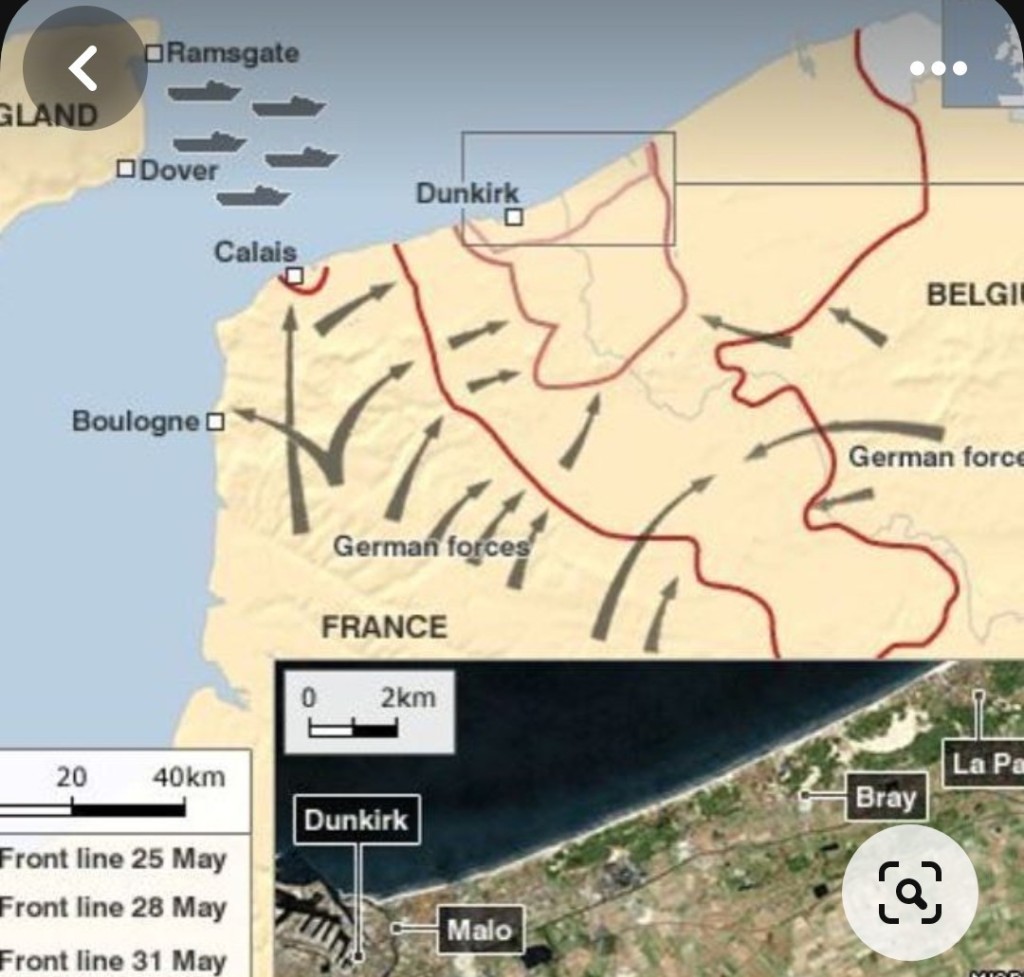
As he scrambled along, hitting the ground during the air attacks, he came face to face with a German armoured car crew who started machine gunning the approaching soldiers. Tired, scared and disorientated, he dropped his rifle and put his hands up in surrender. He was now a prisoner of war! He was still just nineteen years old. (When I was nineteen, I was in my first year of college education)
Meanwhile his family had no idea of his whereabouts or his fate. Almost two months after his capture, on July 11th 1940, his mother received the letter that all parents or wives dreaded.
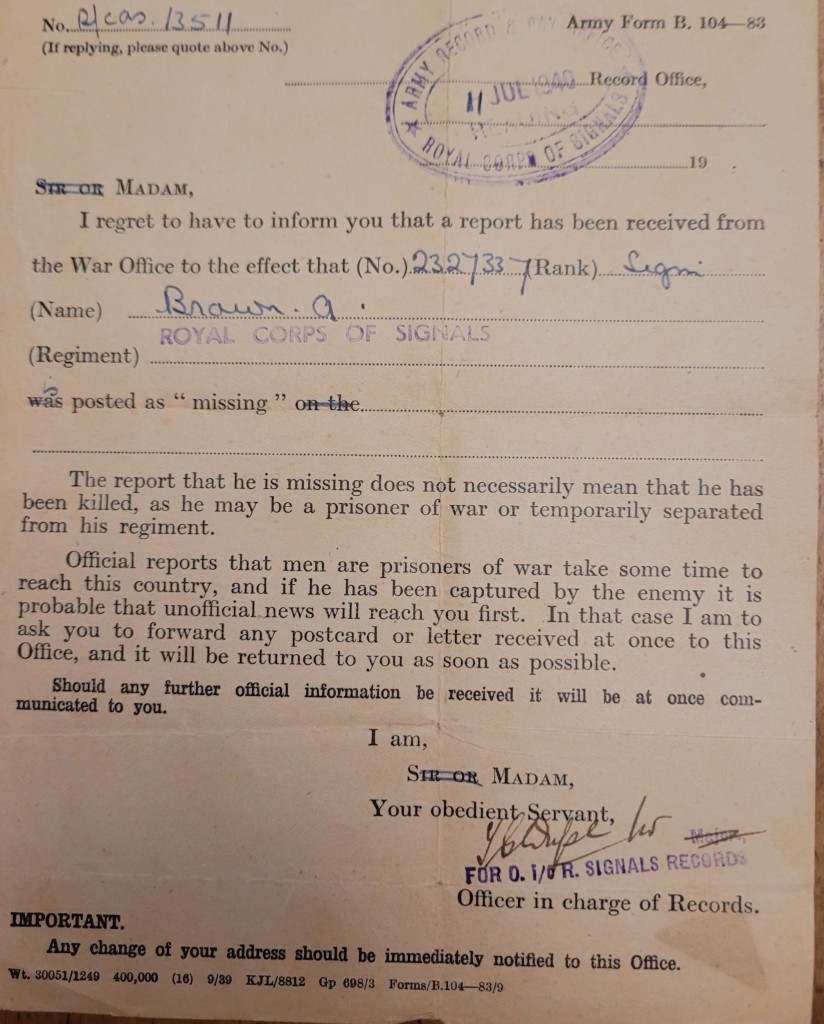
Her son was missing in action. They would have to wait in order to find out if he was dead or alive. I can well imagine her pain as she then read the last letter her son, Arthur sent to her.
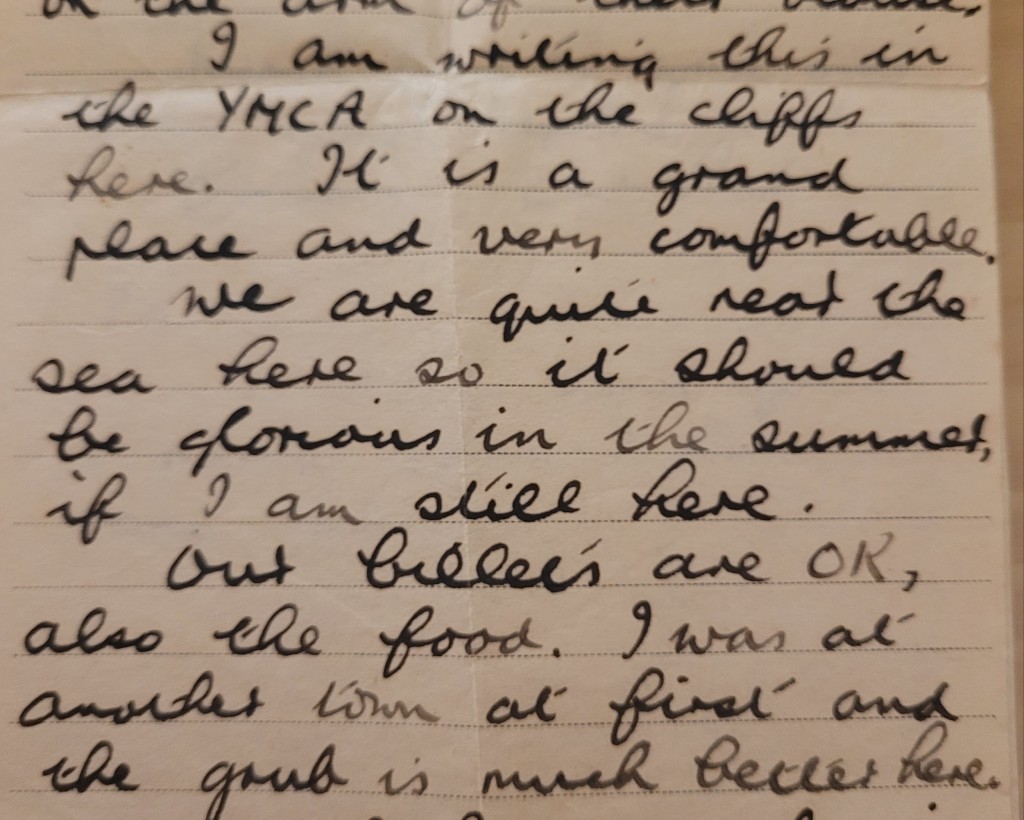
Coming shortly; Part 2 – The Prisoner.
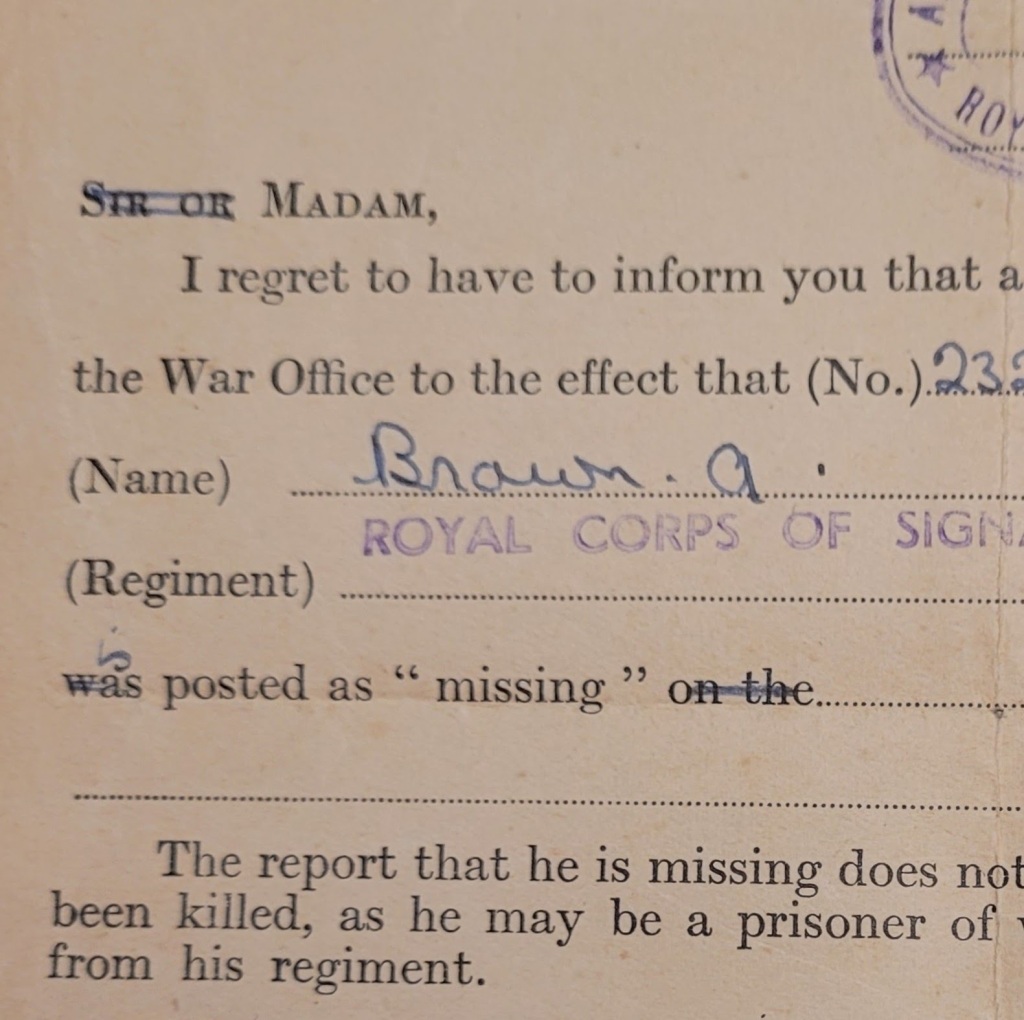
Leave a comment